More than 18% of Ukrainian scientists have fled and the nation has lost about 20% of its research capacity since Russia’s invasion in February last year, according to new analysis by researchers at the Swiss Federal Institute of Technology (EPFL) Lausanne, Switzerland. The study, led by science policy expert Gaétan de Rassenfosse and based on the survey responses of more than 2500 Ukrainian scientists, is one of the most extensive investigations to date on how Ukrainian scientists were affected by the war.
The EPFL researchers note that the proportion of scientists that left the country, is ‘surprisingly close’ to the United Nations High Commissioner for Refugees’ estimate for the departure rate of whole Ukrainian population. This suggests that scientists were no more likely than the rest of the population to leave the country. However, the analysis does indicate that the most productive and research-active scientists departed the country at a higher rate.
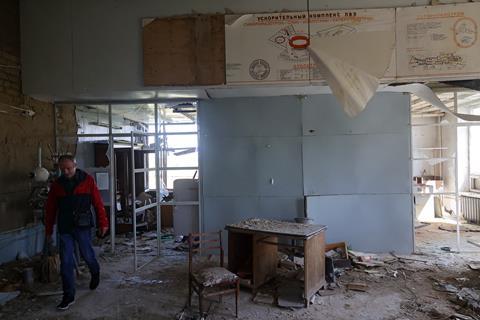
Many of these migrant scientists are under precarious contracts at their host institutions abroad, de Rassenfosse notes. By autumn 2022, when the survey was conducted, just 14% of the researchers migrating from Ukraine had secured a long-term contract at an academic host institution.
‘The vast majority of this funding was emergency or temporary funding for three, six, nine months, up to a year, which means now we have arrived at the moment where that funding has expired,’ de Rassenfosse tells Chemistry World. ‘And so now comes the challenge for these folks to find a long-term position, or at least a more stable position, in the science system.’
The EPFL team’s survey also revealed that not all of the scientists who have left planned to go back to Ukraine after the war. In fact, de Rassenfosse and colleagues estimate that about 2.5% of ‘the total mass of Ukrainian scientists’ may never return to the country.
Further, they conclude that of the scientists who remained in Ukraine, if still alive, about 15% have left the research field, while others have markedly reduced their time spent on research. In total, the study found that the time Ukrainian scientists spend on research activity, at home or abroad, is down 20%. The team determined that the time the ‘representative’ scientist in the country dedicated to research went from 13 hours per week before the war to about 10 hours per week after the war began in February 2022. However, these numbers do not shed light on the qualitative change to Ukrainian science that may have taken place.
21% of those in Ukraine can’t access their research institution
Based on a bibliographic analysis of scientists with a pre-war Ukrainian affiliation, previous research published earlier this year found that approximately 5% of the most prolific scientists have started publishing with a foreign affiliation and that the number of papers published by Ukrainian scientists has decreased by about 10% compared to the pre-war level.
In addition, de Rassenfosse’s team determined that of those scientists who have remained in Ukraine, more than 23% have lost access to critical input for their research and nearly 21% cannot physically access their research institution.
The EPFL group proposes that foreign funders should offer more scholarships to researchers who have fled Ukraine, estimating that around of €700 million (£603 million) of annual funding is required in support.
For scientists still in Ukraine, they recommend that institutions across Europe and beyond, including the EU and national science agencies, should provide various sources of support, such as remote visiting programmes, access to digital libraries and computing resources, as well as collaborative research grants.
Most may not return
Yaroslav Blume, director of the Institute of Food Biotechnology and Genomics (IFBG) at the National Academy of Sciences of Ukraine who has persevered and maintained his research programmes amid the war, is also concerned. He says the current situation is ‘still terrible and difficult’. All last winter, Blume recalls, he and his wife Alla Yemets – who runs the institute’s department of cell biology and biotechnology – lived and worked under rocket attacks and warning sirens.
‘Most of our staff decided to continue our work at home,’ Blume tells Chemistry World, adding that 6% of IFBG’s staff left Ukraine in search of safety and jobs abroad. ‘The most successful of them will not return to the country even after victory, and the less successful will also continue to look for work abroad,’ he predicts. ‘The state needs to work very hard to create conditions for successful people to return home.’
Blume says that it is important for funding mechanisms like prizes and scholarships to be made available to young Ukrainian scientists, emphasising that financial and institutional stability are crucial for young scientists who continue to make a career in Ukraine.
Grygoriy Dmytriv, dean of the faculty of chemistry at the Ivan Franko National University of Lviv, has similar concerns but sees things a bit differently.
‘I don’t fully agree that more and longer scholarships for migrant scientists are necessary’ he says. Dmytriv notes that scholarships abroad can be a good solution some scientists, particularly female chemists whose institutions are located near active battle areas. However, he points out that rules preventing men under the age of 60 from leaving the country mean that many researchers are unable to accept certain grants. He is aware of several colleagues who have had grants cancelled and had to return funds due to the difficulties in gaining travel permissions.
In addition, Dmytriv points out that mechanisms like remote visiting programmes and access to digital libraries or computing resources will not be useful for all fields of chemistry. For example, he suggests that experimental chemists would find collaborative research grants more helpful, as they can include additional funding for things like salary, materials and scientific equipment.
He also recommends that support should be offered to help translate modern chemistry textbooks from English to Ukrainian.
References
G de Rassenfosse et al, Humanit. Soc. Sci. Commun., 2023, DOI: 10.1057/s41599-023-02346-x






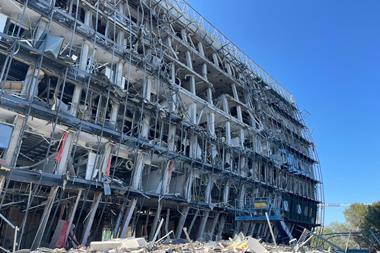
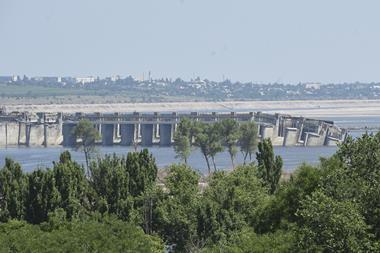
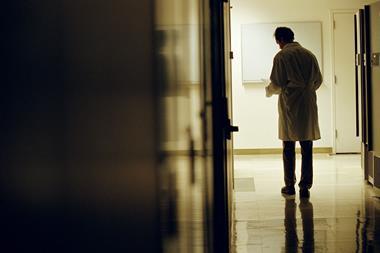
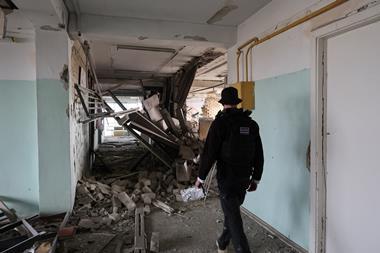
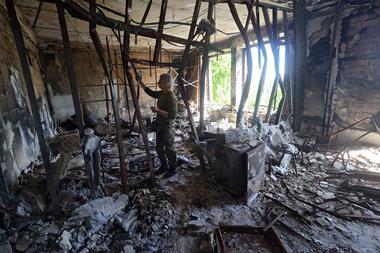






No comments yet